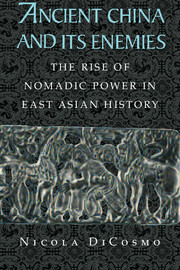Introduction
Published online by Cambridge University Press: 25 August 2009
Summary
In the time of Duke Huan of Ch'i [the position of] the son of Heaven had become humble and weak, while the feudal lords used their energies in attacking [one another]. The Southern Yi and Northern Ti engaged the Central States in battle, and the continued existence of the Central States seemed [to hang by] a thin thread […] Duke Huan was troubled about the distress of the Central States and the rebelliousness of the Yi and Ti. He wished to keep alive what was dying and to preserve what was ceasing to exist, to bring esteem to [the position of] the son of Heaven and broaden civil and military occupations. Therefore the Book of Kuan-tzu grew out of this situation.
(Huai-nan-tzu, 21:7a)It seems a shared human experience that the malleable substance at the origin of “civilizations” – a sense of cultural cohesion, shared destiny, and common origin – coagulates into a harder and stronger matter when the peoples who belong to it are confronted, at times in a threatening way, by other peoples who are seen as being different and “beyond the pale.” The pale, the wall, the furrow in the soil are potentially dividing lines, demarcating the territory a community recognizes as its own, whose crossing, by an alien entity, can generate conflicts and threaten the stability of the community and, in extreme cases, cause its demise.
- Type
- Chapter
- Information
- Ancient China and its EnemiesThe Rise of Nomadic Power in East Asian History, pp. 1 - 10Publisher: Cambridge University PressPrint publication year: 2002



